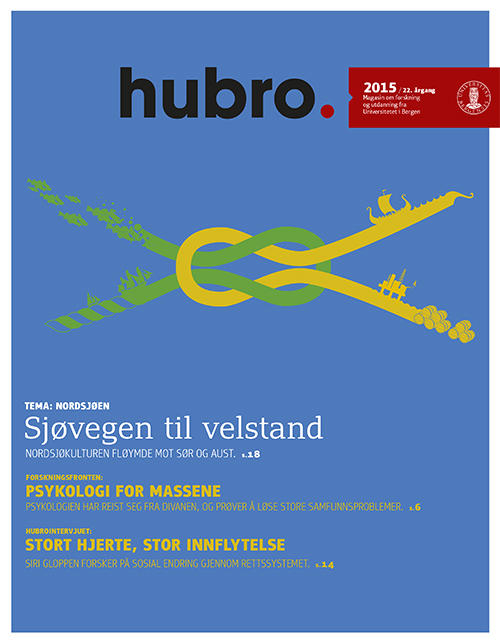Challenging young researchers on life and death
A new course at the Centre for Cancer Biomarkers aims to support young cancer researchers to make good decisions in matters of life and death.

Main content
Let's picture a man between 40 and 49 years old who smokes. Let's say that one out of ten in this population is at risk of serious heart attack. How would you tell him about this without using words like risk and uncertainty?
Professor Roger Strand from Centre for the Study of the Sciences and the Humanities at the University of Bergen poses the question to 14 PhD candidates. The CCBIO course "Cancer research: Ethical, economic and social aspects" aims to view cancer research in a larger context and to make students reflect on important dilemmas they face every day: What treatment should I give to this patient? What research issues should be prioritized?
Life or death
- These questions can mean life or death for the individual patient. Still, there is almost no room to discuss such issues elsewhere in education, explains postdoctoral fellow Anne Blanchard from the Centre for the Study of the Sciences and the Humanities.
She runs the course together with Roger Strand and Professor John Cairns of the London School of Hygiene and Tropical Medicine.
The course will give the individual PhD candidates the opportunity to reflect on the ethical, financial and social aspects of their research and medical practice.
- An example of social, ethical and financial issues discussed in the course is the use of expensive cancer drugs. Should everyone get treatment at any cost? How do we decide who should get the expensive medication, and who do not? How do you choose between the different drugs, Blanchard asks.
Within cancer care, life prolonging treatment may occasionally provide the opportunity to end life in a good way and say properly goodbye. In the course, researchers discuss whether this is a good way to spend healthcare money if the money could have been spent on for example younger patients instead.
- The money could also have been spent on healthcare in other countries or in other areas such as education. It is important to have a broad public debate on Norwegian priorities, and it is also essential to view them in an international context, Anne Blanchard explains.
Tomorrow’s decision-makers
Among the participants are Martha Rolland Jacobsen and Karen Klepsland Mauland.
- It's nice to take a break from our normal everyday as researcher. Here we can broaden our horizon, and we find it interesting to discuss what is appropriate use of healthcare funds. As a clinician, it is also worth considering that what is right for one patient may not necessarily be right for another. This is something we bring with us from the course and to our work, the two young scientists say.
Course coordinator Roger Strand says it like this:
- These are tomorrow's decision-makers. They will be high up in the system in the future. It is important to give them a theoretical platform for the decisions they need to make.
Nothing is for sure
Medicine is often viewed as an exact science, but the course also examines the uncertainty and complexity of the subject.
- With advances in medicine and technology, we tend to think we know all about the body. Nevertheless it is not that simple, the body is an intricate system. Each cancer tumor is different and might not act the same in two different persons. Certain cancer drugs might not work in the same way in different people. How can we cope with this complexity in medical research, Blanchard asks.
One way to deal with the complexity, which also often is the case in medical research, is to use laboratory mice. However, these are used to test specific hypotheses and are equipped with a simple immune system.
- When researchers in medicine attempt to transfer the results from simple mice to complex human bodies, they often fail. When it comes to cancer biomarkers for example, only one percent of the markers reach as far as clinical practice. Therefore we also ask the students the question: is it good use of public funds to do research on cancer biomarkers, Blanchard explains.
Cancer and war rhetoric
The course is intended to develop students' critical thinking and trigger reflection of their own work. It is also a matter of rhetorics and language.
- The language used about cancer assumes that it is a very unfair and frightening disease, and we often hear phrases like "she lost the battle against cancer." A Times Magazine cover referred to "ammunition against cancer," with the drugs presented as bullets. Is it really losing a game? The wording may give patients a sense of guilt. Yet life is something we cannot fully control, Blanchard says.
